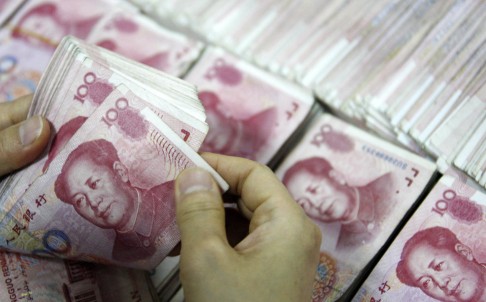When paying the taxman also requires paying bribes
Small businesses complain they must routinely pay off tax collectors to avoid trumped up fines
PUBLISHED : Thursday, 03 April, 2014, 5:11am
UPDATED : Thursday, 03 April, 2014, 5:15am
Angela Meng [email protected]

Civil servants on the mainland are paid notoriously low salaries, which analysts say is a leading cause of corruption at the local government level.
He used to hold a cushy job in one of the mainland's largest privately held consumer electronics companies, a firm that had extensive connections to the central government and rumoured ties with the military.
In his 12 years as sales director at the firm, he enjoyed extravagant bonuses and tax breaks, gliding through work with ease.
But two years ago he quit his job to start his own business. That was when his troubles began - at the hands of corrupt tax officials.
The 41-year-old man, who wanted to be known only by his surname, Luo, to avoid potential harassment from local bureaucrats, owns a franchise of restaurants.
Six months into his business venture, he was accused of money laundering.
"The tax official just said he was informed by 'somebody' that we might be laundering money and that it was his duty to investigate," he said.
What followed was two weeks of tax visits that included threats of six-digit fines and endless requests for obscure documents.
"After much negotiation with the official, we eventually agreed that we would pay a fee to convince him that the 'anonymous tip' was groundless," Luo said.
"'Here's 20,000 yuan [HK$25,000] to prove we didn't launder money,' we told him. The money was his ultimate aim after all."
A call to the district tax bureau went answered.
As part of efforts to curb corruption and enhance transparency and ethical standards in the way the mainland collects tax, Beijing in August signed the Multilateral Convention on Mutual Administrative Assistance in Tax Matters with the Organisation for Economic Co-operation and Development.
But businessmen said that despite the initiative corruption among tax officials at local government level was still rife.
"[Officials] would randomly show up at our restaurants," Luo said. "Of course, we would host them. Then we would host their friends and family. And afterwards, we have to give them transport money."
Luo, who is from Wuhan , in Hubei province, estimated that he had given more than 60,000 yuan in cash to tax officials over the past year.
The State Administration of Taxation oversees tax matters on the mainland, but small to medium-sized enterprises like Luo's are left in the hands of district tax officials.
"You have to bribe the local tax officials more because they are closer and can make a lot of trouble for you," said a Malaysian-Chinese businessman, who asked not to be named.
He runs an IT network solutions company for multinational corporations in Beijing.
He said he has dealt with four tax visits this year, spending more than 150,000 yuan in bribes to tax auditors. "The amount I've paid is not that much, but if we do the maths, if the auditors get 150,000 yuan from just four visits, how much money do they get from their visits in a month, in a year?" he asked.
Civil servants on the mainland are paid notoriously low salaries, which analysts say is a leading cause of corruption at the local government level.
An American-Chinese businessman, who also asked not to be named, said dealing with tax officials was an elaborate ritual as they push businesses for bribes.
"They will come to me and say, 'according to this country's standards, your books don't match, so you'll be fined 100,000 yuan'," he said. "So I answer, 'Wow, sorry, is there any way of reducing the fine?'
"After a few rounds of this, they will accept a bribe - like 30,000 yuan - to help us write a statement, so we will be fined less, maybe just 10,000 yuan."
The businessman, who started his retail venture in 2008, said: "They help you cheat the system. They always pretend to resist bribes and we have to insist on shoving them money, coupons or tickets to events. In the end, it's a show.
"I don't blame them. If their superiors are corrupt and the higher ups are also corrupt, then why should they be stupid and do their job by the book?
"They might as well exploit a system that allows corruption."
President Xi Jinping has made tackling corruption one of the priorities of his government, but business people said this had a limited impact on local tax officials.
"It's harder to arrange for meals with officials as they're more careful now," said the American-Chinese businessman. "But if you arrange to leave something on their desk, they'll still take it immediately."
Wang Yuhua, a political science professor at the University of Pennsylvania, in the United States, said corruption was due to weak institutions and poor implementation of the rule of law.
"If you open a business in China, you still have to build connections with officials. That much has not changed," Wang said.
"But my worry about the anti-graft campaign is that even though we are seeing improvements, they are not sustainable.
"Just because the officials can't drink mao-tai, any more doesn't mean they're clean," Wang said, referencing the often pricey variety of Chinese spirit.
The American-Chinese businessman related a recent visit by a woman tax auditor who hinted she wanted money to pay for medicine.
"She said she was having a difficult pregnancy, but could not afford this expensive Chinese medicine," he said. "So our driver went with her to buy it. It cost 35,000 yuan.
"After the visit, our driver dropped her off at home and saw that she drove an Audi A6."
